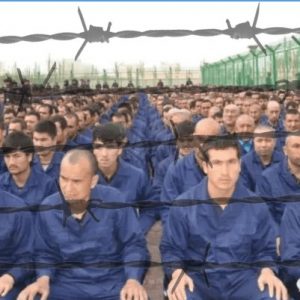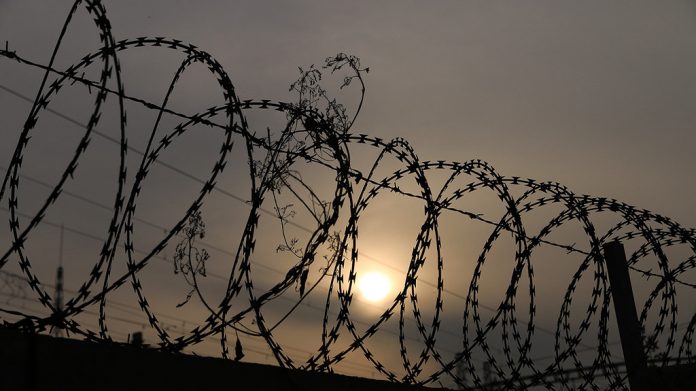On 19 December the European Parliament adopted a resolution expressing serious concern about China’s repression of the Uyghurs. MEPs called on the Chinese government to close the “re-education camps” operated by the regime in Xinjiang. They also demanded the immediate release of 2019 Sakharov Prize laureate and activist Ilham Tohti.
This is not the first time the European Parliament has taken such a stance. In October 2018, MEPs urged the Chinese government to close all camps and detention centres and stop arbitrary arrests and detentions of ethnic minorities and human rights defenders in Xinjiang region. They also invited all EU governments to suspend the return of ethnic Uyghurs, Kazakhs and other Turkic Muslim minorities to China.
A forced assimilation policy
The Xinjiang Uyghur Autonomous Region in northwest China is of particular importance since it is rich in oil and natural resources. It is also an important component of the New Silk Road. But Xinjiang has a turbulent history and the current state of unrest and instability is making for a very critical present. This is due to how the Chinese side is handling the Uyghurs’ reaction to state discrimination.
The Uyghurs are an ethnic Turkish group that has been living in the region for centuries. They believe in a moderate form of Islam. According to the 2010 population census, they number 10 million.
MEPs underlined that is vital for the EU to raise the issue of human rights violations in China at every political and human rights dialogue with the Chinese authorities
For centuries, Xinjiang has been torn by the Sino-Russian confrontation in the area. Efforts to establish a national state have been unsuccessful since the two East Turkestan Republics (1933-34 and 1944-49) were short lived. In 1949, the land of the Uyghurs came under the control of Communist China and was renamed Xinjiang, which means ‘New Frontier’.
China applied a policy aiming at the demographic alteration of the region by sending a huge Chinese Han population to Xinjiang. The Uyghurs were seen as a problem from the very beginning since they are considered non-Chinese and are Muslims (despite the fact that the Chinese Muslims Hui have always enjoyed religious freedom) and they also have a strong sense of national belonging. At that time, the Uyghurs faced different kinds of discrimination mainly in the economic sector. Their situation today, however, has radically changed.
China wants to put an end to any local ethnic and religious diversity and is pursuing an assimilation policy. The Uyghurs live under a quasi-total discriminatory environment that includes religious restrictions, economic exclusion, imprisonment and absolute prohibition of any reaction. In some cases, the punishment is a death sentence.
As regards religion, the regime imposes dress codes that prohibit women from wearing a veil and men from growing a beard. Students at university and workers in factories are also not allowed to fast during Ramadan. Mosques are systematically demolished. Even a state-approved version of the Quran is the only one allowed.
Uyghur families are target of a brutal programme that separates children from mothers and sends them to state institutions or to live with Chinese families.
The Uyghurs have tried to react, but the regime has responded by sending in forces to maintain order. In the 2009 riots, many Uyghurs were killed and until today any demonstration – even a peaceful march – may be considered by the Chinese state as an act of terrorism. As such, Chinese police are allowed to shoot the demonstrators.
Many Uyghurs try to escape – some to Central and South Asia and others to Turkey. But the Chinese government does not stop to persecute them. Instead, China asks foreign governments to extradite them to China. Chinese secret services are particularly active in EU soil against Uyghur refugees while their families in China are subject to state repression.

MEPs called on the Chinese government to close the “re-education camps” operated by the regime in Xinjiang. (PHOTO BY WORLD UYGHUR CONGRESS)
Following this policy, the Uyghur problem has been upgraded into an international ‘question’ that deserves the same attention as the Palestinian or Kurdish questions.
In addition, the problem of brutal repression of any kind of diversity in China is not limited to the Uyghurs. The Tibetans suffered (and still do) the highest levels of religious persecution in China. Also, human rights and labour rights activists, as well as Christians and members of other minority religious groups, are systematically prosecuted.
Is the EU member states keen to confront China?
The European Parliament’s 19 December resolution also recognised that instruments used so far by the EU have not resulted in any progress in China’s human rights record, which has only deteriorated during the last decade. They underlined that is vital for the EU to raise the issue of human rights violations in China at every political and human rights dialogue with the Chinese authorities. MEPs called on the European Council “to adopt targeted sanctions and freeze assets, if deemed appropriate and effective, against the Chinese officials responsible for severe repression of fundamental rights in Xinjiang”.
On some level, the European Parliament’s resolution saved the EU’s reputation. However, the real ‘boss’ here is not the European Parliament, but the European Council and in particular the leaders of the EU member states. Are the EU member states keen to defend Uyghurs?
To answer the question it is necessary to understand what such an action would entail.
The Chinese regime is particularly negative to any discussion on the question of human rights in its territory since it denies the very importance and role human rights have in modern societies. It perceives the concept of human rights as a mere expression of anti-Chinese attitudes, it considers that no foreigner, government or organisation, has the right to question how it governs and demands to be critic-free to apply any policy it believes opportune.
What is more, China represents an immense economic power that easily quiets critics all over the world. The Muslim countries and particularly the Arab champions of Islam although declaring their concern for the worldwide rising Islamophobia already retreated from any defence of the Uyghurs that could harm their economic interests. Only Turkey, and to some extent Malaysia, still declare its commitment to defend the Uyghurs.
Are the EU governments ready to confront China?
Chinese capital met the European industry – thirsty for money and markets – and Chinese investments targeted structurally important areas, such as Greece’s port of Piraeus. Chinese trade and economic activities were welcomed by Europeans without reservations. This permitted the building of a powerful pro-China lobby in the EU, which (much like a spider web) captured EU member states public opinion.
Business people, academics, scientists and politicians were regularly invited to conferences and on professional trips to China where officials propagated the new ‘Chinese miracle’. Because of this, many EU countries applied a questionable flexibility in the market of ‘golden visas’ acquired by Chinese citizens and allowed Chinese businessmen investing, practically without control, in real estate markets, pushing prices to unrealistically high levels which ultimately proved detrimental for the local communities.
On the question of human rights, many EU governments prefer to ignore the fact that China has one of the most repressive systems in the world. European societies reacted softly to the attempts of Chinese secret services against refugees for political, ethnic or religious reasons, in France, Sweden and elsewhere.
But the Chinese, like every nouveau riche, did not control their avidity. And the question now is not trade, competition or human rights. It touches on security!
European security
A year ago, many European governments realised that China’s tech giant Huawei represents a threat to national security. And several EU countries, France, Germany, United Kingdom and the Czech Republic have questioned Huawei’s activities ahead of auctions to build their 5G networks this year due to the company’s ties to the Chinese government and concerns that Beijing could be using this equipment for spying.
The EU’s foreign policy should have a principled dimension. We cannot cooperate and facilitate economic relations with countries that violently breach human right questions
In addition, a spying network was discovered hiding behind the chain of Confucius cultural centres.
However, there are still many EU governments that refuse to understand what is at stake. These countries are happy to grant China concessions that resolve urgent financial needs but represent a long-term threat for the national economies.
The EU must be ready to repulse any attempt against its own interests which is the interests of European citizens. The EU’s foreign policy should have a principled dimension. We cannot cooperate and facilitate economic relations with countries that violently breach human rights questions.
Defending Uyghurs is important for Europe to show China that human rights issues still matter for EU politicians and governments. It’s time for the EU to show its independence in designing the priorities of its foreign policy.

